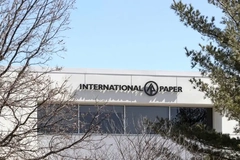75 Years of Hamba: a Success Story
18 Nov 2014

In the early 1970s, Hamba then became one of the first providers on the market to develop special machinery for sterile cup packaging. This was a pioneering and successful development, as it had previously been impossible to offer long shelf lives for dairy products that were not refrigerated.
It all started at Hamba back in 1939, when design engineer Hans Adalbert Müller decided to set up a company to manufacture packaging machinery. The outbreak of the Second World War thwarted Müller's plans to pursue the business idea he really wanted to pursue. Instead, Müller was forced to manufacture aircraft components. As soon as the war was over, however, he started making tableting, labeling, dispensing and gluing machines for the pharmaceutical industry. At the same time, the company developed its first butter packaging machine, which proved so successful that Müller decided to focus exclusively on machinery for the food industry from then on.
The early 1950s Hamba manufactured its first filling machines, initially for the production of waxed paper bags for disposable milk cartons. Cup fillers for yogurt conquered the market soon afterwards. Hamba also started to produce "milk production lines" for major dairies, which were capable of molding, filling and sealing 60,000 polyethylene bottles a day in one machining step. The business flourished and in 1969, Hamba opened a second plant in Neunkirchen in the Saarland region. The company shifted its entire production activities to Neunkirchen, while its head office and the production facilities for spare parts and subsequent supply remained in Wuppertal for the time being.
Aseptic processing as a competitive advantage
In the early 1970s, Hamba then became one of the first providers on the market to develop special machinery for sterile cup packaging. This was a pioneering and successful development, as it had previously been impossible to offer long shelf lives for dairy products that were not refrigerated. As a result, Hamba made aseptic packaging machinery a fixed component of its production range. As well as the wet-aseptic process, the company also started to use UVC rays for ultraclean applications. This meant that the packaged goods could be kept for twice as long. The ultraviolet method of irradiation was used primarily for portion fillers, as well as for Form, Fill and Seal machinery for tubular bags.
All-purpose machinery based on the modular principle rounded off the company's range of products, allowing individual filling stations to be put together on a step-by-step basis and in different combinations to meet specific requirements. Hamba was now able to supply its customers with complete packaging lines in a whole range of performance categories for the filling of liquid and pasty products. The dosing quantities ranged from 100 to 1,000 ccm; cups could be sealed using sealing lids, snap-on-lids and inverted trays. The "BF 2400" cup filler and the "BK 10.010/10" modular system were the company's best sellers. The latter was able to fill and seal 20 150g cups per cycle, with an hourly output of 36,000 units. Back then, no other machine of this type was able to offer this sort of performance.
The company's founding father, Hans Adalbert Müller, passed away in 1978, with this son Hans Peter taking over at the helm. The company's annual revenue at that time came in at around DM 30 million. By then, Hamba machines could be found in 52 countries across the globe and produced a whole variety of products - from milk, yogurt, cream and butter to ice-cream, custard pudding, jam, mayonnaise and fruit juice.
International growth
The company went from strength to strength in the years that followed. In 2000, the company SIG replaced the family management team, before the OYSTAR Group, with nine worldwide locations, took the company over in 2007. This move has promoted the company's international growth even further: today, Hamba machinery is used in more than sixty countries worldwide. The company, which is now based in Saarbrücken, specializes in high-performance filling and sealing machines for liquid and pasty products packaged in pre-formed plastic cups or cups made of paper and plastic composites, as well as pre-formed bottles made of various different plastics.
By way of example, the third-largest producer of yogurt products in Poland, "Bakoma Sp.z o.o.", recently installed a "Flexline FL 8/8 CA". The cup filling machine fills and seals 38,400 pre-formed cups with dairy products every hour. Aseptic processing is still a decisive factor: the cups are cleaned using ionized air before having any remaining particles removed by suction. They are then sterilized in a disinfection process using H2O2 and are dried with sterile air.
Continuous innovation
Another highlight offered by OYSTAR Hamba is the patented chainless "MultiFormat" transportation system. It boosts system availability for pre-formed cups by up to 25 percent. The automated format change feature increases the productive time of flexible format machines by reducing the set-up time for format changes. Cell boards, for example, can be changed in the space of 15 minutes. This facilitates the lucrative production of varying seasonal and country-specific packaging formats using the cup filling systems. The time and effort involved in maintaining the systems is also reduced, for example thanks to the fact that there is no need to replace the transport chain or carry out any of the adjustment work needed for chain stretch.
The packaging machinery sector has been subject to constant change over the past 75 years. Hamba, however, has always managed to pick up on changing market demands early on, continually setting new trends. As a result, the company's customers have always been supplied with innovative machines that always have one thing in common: the very highest quality standards.
Aseptic processing as a competitive advantage
In the early 1970s, Hamba then became one of the first providers on the market to develop special machinery for sterile cup packaging. This was a pioneering and successful development, as it had previously been impossible to offer long shelf lives for dairy products that were not refrigerated. As a result, Hamba made aseptic packaging machinery a fixed component of its production range. As well as the wet-aseptic process, the company also started to use UVC rays for ultraclean applications. This meant that the packaged goods could be kept for twice as long. The ultraviolet method of irradiation was used primarily for portion fillers, as well as for Form, Fill and Seal machinery for tubular bags.
All-purpose machinery based on the modular principle rounded off the company's range of products, allowing individual filling stations to be put together on a step-by-step basis and in different combinations to meet specific requirements. Hamba was now able to supply its customers with complete packaging lines in a whole range of performance categories for the filling of liquid and pasty products. The dosing quantities ranged from 100 to 1,000 ccm; cups could be sealed using sealing lids, snap-on-lids and inverted trays. The "BF 2400" cup filler and the "BK 10.010/10" modular system were the company's best sellers. The latter was able to fill and seal 20 150g cups per cycle, with an hourly output of 36,000 units. Back then, no other machine of this type was able to offer this sort of performance.
The company's founding father, Hans Adalbert Müller, passed away in 1978, with this son Hans Peter taking over at the helm. The company's annual revenue at that time came in at around DM 30 million. By then, Hamba machines could be found in 52 countries across the globe and produced a whole variety of products - from milk, yogurt, cream and butter to ice-cream, custard pudding, jam, mayonnaise and fruit juice.
International growth
The company went from strength to strength in the years that followed. In 2000, the company SIG replaced the family management team, before the OYSTAR Group, with nine worldwide locations, took the company over in 2007. This move has promoted the company's international growth even further: today, Hamba machinery is used in more than sixty countries worldwide. The company, which is now based in Saarbrücken, specializes in high-performance filling and sealing machines for liquid and pasty products packaged in pre-formed plastic cups or cups made of paper and plastic composites, as well as pre-formed bottles made of various different plastics.
By way of example, the third-largest producer of yogurt products in Poland, "Bakoma Sp.z o.o.", recently installed a "Flexline FL 8/8 CA". The cup filling machine fills and seals 38,400 pre-formed cups with dairy products every hour. Aseptic processing is still a decisive factor: the cups are cleaned using ionized air before having any remaining particles removed by suction. They are then sterilized in a disinfection process using H2O2 and are dried with sterile air.
Continuous innovation
Another highlight offered by OYSTAR Hamba is the patented chainless "MultiFormat" transportation system. It boosts system availability for pre-formed cups by up to 25 percent. The automated format change feature increases the productive time of flexible format machines by reducing the set-up time for format changes. Cell boards, for example, can be changed in the space of 15 minutes. This facilitates the lucrative production of varying seasonal and country-specific packaging formats using the cup filling systems. The time and effort involved in maintaining the systems is also reduced, for example thanks to the fact that there is no need to replace the transport chain or carry out any of the adjustment work needed for chain stretch.
The packaging machinery sector has been subject to constant change over the past 75 years. Hamba, however, has always managed to pick up on changing market demands early on, continually setting new trends. As a result, the company's customers have always been supplied with innovative machines that always have one thing in common: the very highest quality standards.
Source: OYSTAR Group
All content and features on this website are copyrighted with all rights reserved. The full details can be found in our privacy statement
Subscribe to our newsletters
By continuing to browse our site you agree to our Privacy Statement











